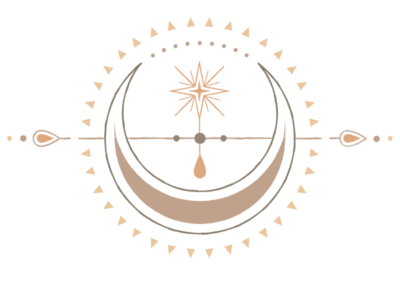Have you ever wondered about the ancient practice of acupuncture, those tiny needles that hold the promise of healing and balance? If you’ve ever been curious about this intriguing method of wellness, you’re not alone. Let’s dive into the history of acupuncture, understand what it is, and explore its fascinating connection to the spiritual world in a casually informative way.
A Glimpse into History
Acupuncture has a rich history that stretches back over 2,500 years, originating in China. It’s a central component of Traditional Chinese Medicine (TCM), a holistic approach that treats the mind, body, and spirit. The first known text that mentions acupuncture is the “Huangdi Neijing” or “The Yellow Emperor’s Classic of Internal Medicine,” dating back to around 100 BCE. This ancient medical compendium laid the foundation for the practice, detailing various acupuncture points and meridians.
Over the centuries, acupuncture spread beyond China, making its way to other parts of Asia, including Korea and Japan. By the 20th century, it had traveled to the West, where it gained popularity as an alternative treatment for various ailments.
What is Acupuncture?
At its core, acupuncture involves inserting very fine needles into specific points on the body, known as acupuncture points. These points are located along pathways called meridians, which, according to TCM, are channels through which life energy, or “Qi” (pronounced “chee”), flows. The goal of acupuncture is to balance the flow of Qi, promoting overall health and well-being.
Practitioners of acupuncture believe that illness arises when the flow of Qi is blocked or unbalanced. By stimulating these acupuncture points, the needles help to restore the natural flow of energy, thereby alleviating pain and treating various health conditions.
How Acupuncture Works
While the idea of needles might sound intimidating, acupuncture is generally painless. The needles are much thinner than the ones used for injections, and most people feel only a slight pinch, if anything at all. Once the needles are in place, they stay there for about 15 to 30 minutes, during which you might feel a sense of relaxation or even fall asleep.
Modern science is still unraveling exactly how acupuncture works. Some theories suggest that it stimulates the nervous system, releasing endorphins and other natural painkillers. Others believe it affects the autonomic nervous system, which controls bodily functions like blood pressure and digestion. Regardless of the exact mechanism, countless people swear by its benefits for conditions like chronic pain, migraines, and stress.
Acupuncture and the Spiritual World
One of the most fascinating aspects of acupuncture is its connection to spirituality. In TCM, health is not just about the absence of disease but a state of harmony between the body, mind, and spirit. This holistic view recognizes that physical symptoms are often manifestations of deeper, spiritual imbalances.
The Concept of Qi
Central to this spiritual perspective is the concept of Qi. This vital life force flows through every living being and is essential for health and vitality. When Qi is balanced and flowing freely, we experience good health and emotional well-being. Conversely, blockages or imbalances in Qi can lead to physical and emotional ailments.
Acupuncture aims to restore the balance of Qi, addressing not just the physical symptoms but also the underlying spiritual disharmony. This approach resonates with many who seek a deeper, more holistic method of healing.
Mind-Body Connection
Acupuncture also emphasizes the interconnectedness of the mind and body. Stress, anxiety, and other emotional disturbances can disrupt the flow of Qi, leading to physical symptoms. By promoting relaxation and reducing stress, acupuncture helps to heal both the mind and body. This mind-body connection is a fundamental aspect of many spiritual traditions, which view physical health as inseparable from mental and spiritual well-being.
Embracing Acupuncture in Modern Life
In our fast-paced, often stressful world, acupuncture offers a path to balance and harmony. It encourages us to listen to our bodies, recognize the importance of mental and emotional health, and seek holistic solutions to our ailments.
For those new to acupuncture, the first step might be a bit daunting. However, many people find the experience to be deeply relaxing and transformative. Whether you’re dealing with chronic pain, stress, or simply looking for a way to enhance your overall well-being, acupuncture can be a valuable tool.
Final Thoughts
Acupuncture is more than just a treatment; it’s a journey into understanding the profound connection between our physical health and spiritual well-being. It invites us to explore the ancient wisdom of TCM and embrace a holistic approach to healing. So, if you’re curious about those tiny needles and what they can do for you, why not give acupuncture a try? You might just find that it opens the door to a new level of health and harmony in your life.
As you embark on this journey, remember that acupuncture is not just about alleviating symptoms but about restoring balance and connecting with the deeper aspects of your being. Here’s to your health, both physical and spiritual!








